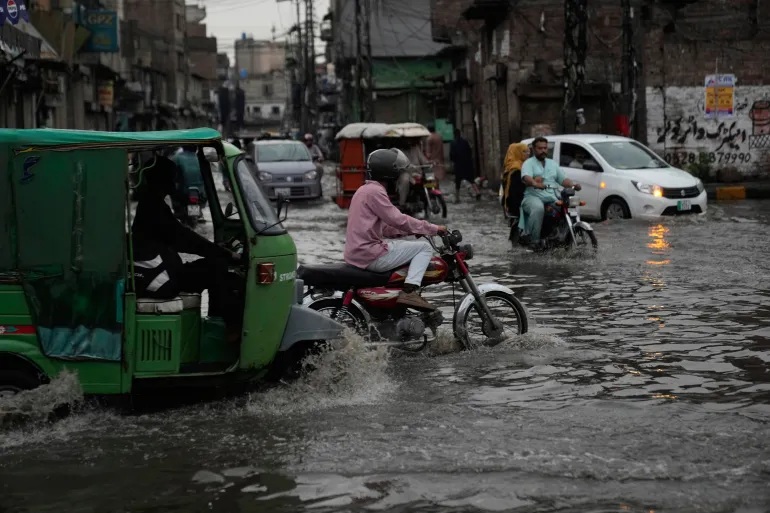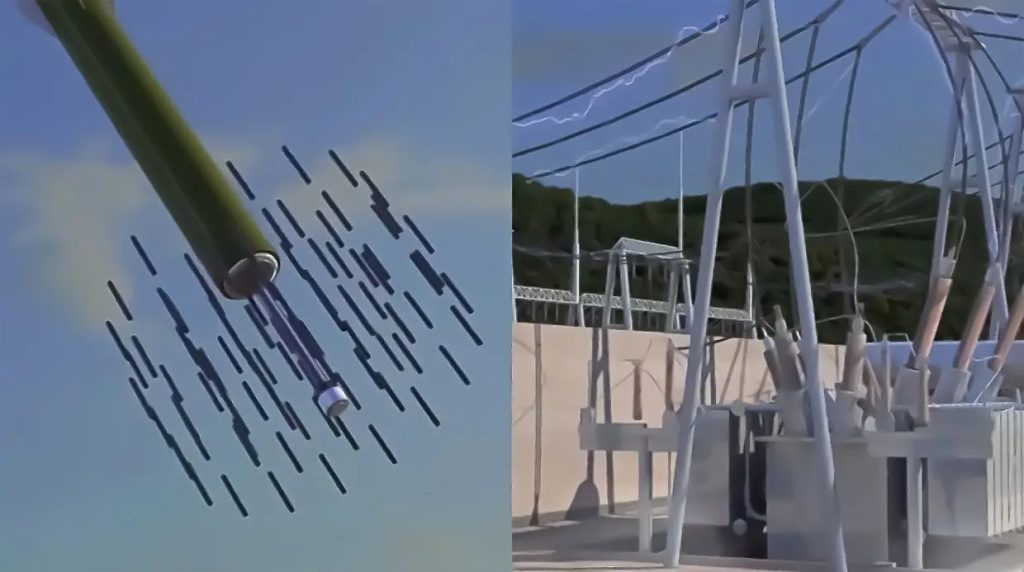Economy
Theft Of Farm Produce Spreads Across Nigeria

Food insecurity in Nigeria could get significantly worse as criminal elements now engage in large-scale theft of farm produce just days, and sometimes hours, before farm owners come to harvest their crops.
The scale of theft is different across states of the country. While farmers in southern states have to deal with petty thieves, the desperation, hunger and insecurity in the north create the atmosphere for large-scale criminality.
DDM News was able to gather reports of theft and criminal activities on privately owned farms from at least 15 states across the regions of the country, some of which appear in this report.
This is just as the World Bank has warned of increased food insecurity in seven states in the Northwest and Northeast regions of the country, blaming insecurity, armed conflicts and the reduced standards of living.
The states that the World Bank named as being under threat of severe food crisis include Borno, Adamawa, Kaduna, Katsina, Yobe, Sokoto, and Zamfara.
Findings by DDM News, however, suggest that the food crisis is being worsened by the ECOWAS sanctions on Niger Republic, which can no longer import food from ports in West Africa, and the falling value of the Naira against CFA Franc, which is the currency used by most of Nigeria’s neighbours.
The underlining circumstances are making the diversion of foodstuff from many of the states in the Northwest and Northeast to neighbouring countries more profitable.
Nigerian governors had recently stated that food in country is cheaper in Nigeria than in most West African states. However, they did not acknowledge the impact the value of the Naira on all this.
According to Prof. Hassan Ishaq Ibrahim, agricultural economist at Federal University, Dutsin-ma, Katsina State, there could be a threat of famine in areas that have suffered prolonged conflict or unabated insecurity which prevent farmers’ access to their farms.
“In such areas, unless there are deliberate measures put in place by government at all levels, famine in such places may be inevitable.
“Whether or not there are early warning signs indicating food shortages, there is no doubting the fact that in such areas that suffer persistent insecurity and unwarranted attacks which prevent farmer access to their farms, there will be certainly be a decrease in food production in such areas,” he said.
On the insinuation that farmers now prefer to sell their produce to neighbouring countries because of the Naira losing value, coupled with the fact that Niger Republic can no longer import food through seaports in the ECOWAS region, Prof. Ibrahim said he could not authenticate that, but stressed, however, that every farmer had the right to sell their farm produce wherever brings them maximum profit.
Farmers who spoke with LEADERSHIP Weekend would only admit to having challenges over insecurity and the large-scale theft of their harvest, but were less open about suggestions that their crops and foodstuff are ending up in neighbouring countries.
LEADERSHIP Weekend also discovered that most of the thefts go unreported and as such no official investigation has been conducted by either the federal government or state governments to assess the impact of the theft and put numbers to how much it costing the economy.
Bauchi
One farmer that that has struggled since falling victim to some criminals is Gayus Musa. He is a 38-year-old man based in Boi, Bogoro LGA of Bauchi State. He says that he laboured to feed his family following activities of suspected thieves in his farm shortly before harvest.
Musa, who has a family of six, lost nearly half of a hectare of guinea corn farm to thieves who invaded it at night and went away with the crops, denying him the fruit of his labour.
Speaking to LEADERSHIP Weekend, he said, “With the current turbulent economic times, losing such a huge crop yield is not easy to contend with, considering the daily food needs of my family.
“The invaders usually strike farms in the community at night when most farm owners are asleep.”
Nursing the wounds, Musa said he could not offer his family three square meals as he used to because of the impact of the loss and hike in the prices of food items.
“Previously, I sold a percentage of the harvest to pay my children’s school fees, but now I do not know what to do,” he said, adding that he did not report the matter to the police.
“I turned to God to comfort me and replenish the loss,” he said.
Jigawa
Another victim is Lukeman Abdulmalik, a graduate and young farmer who resides in Kano but cultivates rice, wheat, pumpkin, onion and water melon in neighbouring Gabarun, Ringim, in Jigawa State.
In an interview with LEADERSHIP Weekend in Kano, he said after his NYSC, he did some jobs and invested some of his income in agriculture, which he ventured into in 2021.
According to him, the move yielded good results and he made gains.
That was until last year, 2023, when his farm was invaded by unknown thieves who harvested his two acres of rice farmland worth over N2 million over night.
Abdulmalik explained that he had two different farmlands – four hectares and two acres, which he leased, noting that sometime in June last year he planted rice on the two acres of farmland with an expectation of harvesting nothing less than 60 bags, but when it was ripe for harvest, he lost everything.
“Due to inadequate rainfall last year, I had to pump water to irrigate the farm because rice produces more in a waterlogged area. I pumped water after every four days when there was no rain and I spent nothing less than N7,000 to N8,000 to buy fuel, especially after the removal of fuel subsidy, to pump water from my borehole.
“After three months, when it was due for harvesting, it was harvested by unknown people. Though the villagers, as I was told by someone from the village, that sometime in the past the villagers had a clash with some herdsmen. It was few months after the clash that the incident of theft on farms began. I know a friend of mine whose his own farm was set ablaze and he lost produce worth over N4 million.”
Abdulmalik did not report the incident to the police; he left everything to God.
“Actually, it affected my capital because it seemed I was starting over again. The loss was huge, about N2 million worth of rice was stolen. I felt like quitting farming and it affected me mentally, but life must continue and I will still continue in 2024.
On how he sells his farm produce, he said sometimes he transports them neighbouring states like Kano, Abuja or Lagos and across the border in Niger Republic, depending on the prices on offer, while sometimes he takes them to the local market, especially with the increase in cost of transportation.
Akwa Ibom
Distraught farmers in Akwa Ibom State, struggling to stay afloat under the current economic meltdown, have lamented the additional burden imposed on their agribusiness by draught and pilfering by criminal elements.
Some of the affected farmers, who spoke to DDM News, especially from the rural communities, lamented low yields coupled with theft by local residents hard hit by hunger.
“We caught local thieves who have been stealing our produce before we harvest them. And because of the issue of our cassava, palm fruits, yams and other crops being harvested by thieves, we have to resort to wholesale harvesting at once to clear the farm for another round planting,” Enebong Ntiero, one of the affected farmers in Ika Local Government Area, lamented.
“We had to resort to jungle justice of rough-handling and sometimes dragging them naked with rope on their neck around the villages as a deterrent because the police would release them back to the community because of lack of money to pursue the case,” said another farmer, Ini Etim, a Youths Council secretary of Udianga Enem village in Etim Ekpo LGA.
“What we need is government subsidy for all-year-round planting because what we are experiencing, especially the draught, calls for government intervention through donation of durable high yield seedlings and security,” Akpan Akang, a member of farmers’ cooperative in Uruan LGA said.
The pleas of the affected farmers appear to have gotten government’s attention as the administration of Governor Umo Eno has come up with an interventionist scheme to aid the farmers.
Osun
Farmers in Osun State are vulnerable to the pilfering of their farm produce by hoodlums.
While some have outrightly abandoned farming for other businesses, those left behind are licking their wounds silently.
A retired civil servant, Mr Ademola Adeolu, who invested a fraction of his gratuity in farming in his village, suffered losses not to bad weather but the activities of criminal elements.
Narrating his experience to LEADERSHIP Weekend in Osogbo, Mr. Adeolu said his maize farm was invaded by thieves and over 40 per cent of his farm produce was harvested prematurely and taken away.
Adeolu said he had to harvest the leftover crops hurriedly to avoid further theft, which eventually led to the loss of the capital invested, adding that he had not recovered from the loss till today.
Adeolu said he did not report the incident to the police because he preferred to abandon farming rather than “waste his time pursuing a lost cause”.
While many farmers in the state are caught in the same web, it was gathered that farmers in the state sell their farm produce at local markets while some middlemen take up the responsibility of selling at neighbouring states for higher profit.
Farmers in Osun predominantly deal in cash crops such as cocoa, cola nut, coffee and cashew nuts and the produce are mainly exported.
Katsina
Farmers in Katsina State also experienced cases of stolen farm produce before and during harvest time due to the economic hardship and high cost of living in the country.
Findings show that mostly women and children under the guise of labourers are involved in this act.
Mama Talatu Sani, in Danja local government, said she was surprised when she woke up one morning to discover her beans had been stolen from the farm a few days to the time she was to harvest them,
According to her, she only cried out and complained to the community and left everything to God.
Similarly, Sani Garba Mairuwa in the Faskari local government, also lamented the ugly incidence which, according to him, made farming difficult and unattractive.
He said, “After completing all production processes coupled with the high cost of fertiliser, chemicals, and several other farm inputs, on the eve of the harvest we were devastated by the activities of thieves.
“I had lost about one-third of my maize before I hastily harvested them even before it properly dried. We have no choice but to mobilise and mount guard in our farms in the afternoon, midnight, and early morning.
“Some of the thieves strike during the early morning prayers when most farmers are focused in the mosques.”
For Diaspora Digital Media Updates click on Whatsapp, or Telegram. For eyewitness accounts/ reports/ articles, write to: citizenreports@diasporadigitalmedia.com. Follow us on X (Fomerly Twitter) or Facebook












Binance Sign Up Bonus
April 28, 2025 at 4:14 am
I don’t think the title of your article matches the content lol. Just kidding, mainly because I had some doubts after reading the article.